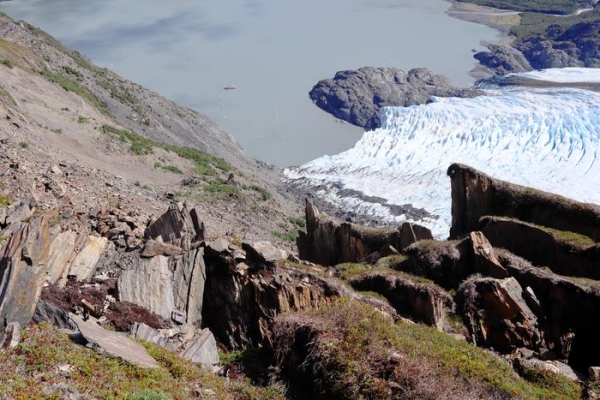The names might not be familiar—Cowee Creek, Brabazon Range, Upper Pederson Lagoon—but they mark the sites of recent lake tsunamis, a phenomenon that is increasingly common in Alaska, British Columbia and other regions with mountain glaciers.
The names might not be familiar—Cowee Creek, Brabazon Range, Upper Pederson Lagoon—but they mark the sites of recent lake tsunamis, a phenomenon that is increasingly common in Alaska, British Columbia and other regions with mountain glaciers.
Triggered by landslides into small bodies of water, most of these tsunamis have occurred in remote locations so far, but geologist Bretwood Higman of Ground Truth Alaska said it may just be a matter of time before a tsunami swamps a more populated place like Portage Lake near Whittier, Alaska.
When he estimates where the risk of an Alaskan lake tsunami is highest, Portage Lake “is pretty much at the top of my list,” Higman said.
Other sites in Alaska where the risks of lake tsunamis coincide with human activity and infrastructure include Eklutna, Seward, Valdez, Juneau, Grewingk Lake in Kachemak Bay State Park and Index Lake near Glacier View.
Read more at Seismological Society of America
Image: The most active portion of the instability at Portage Glacier, looking down on Portage Lake and a tour boat in the distance. (Credit: Bretwood Higman)




